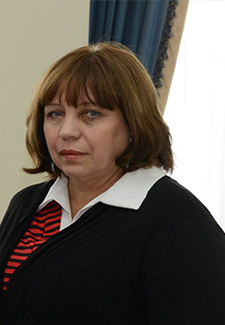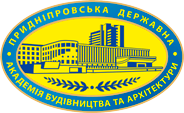Scientific profile

PhD in Historical Sciences, Associate Professor
Tetiana
HREBINNYK
Contacts and CV
Research
Current research
Philosophical comprehension of scientific achievements and architecture both in the historical aspect and in the modern world.
More
Past research
Publications
1. Tetiana Hrebinnyk; Arthur Tarasov “Scientific achievements of modern society”, 6 International and Practical Conference, Liverpool, 5-7 February 2020, 2020 | Conference paper.
2. Tetiana Hrebinnyk; Arthur Tarasov “The influence of the science of philosophy on the culture of thinking of a modern specialist”, 2020 | Journal article, 2020 | Journal article
3. Tetiana Hrebinnyk, Viktor Bilopolyi, Oksana Plaksina “Philosophy in architecture: a modern view”, 2018, Bulletin of the Prydniprovia State Academy of Civil Engineering and Architecture, p.83-88
4. Tetiana Hrebinnyk “The role of humanitarian education in the information society”, “Problems of development of education and science in the context of globalisation : a collection of scientific articles.”, 2016 | Journal article
5. Podolynnyi, T.Hrebinnyk, E. Boldyreva,T. Krivonos, “Functional re-profiling of granite quarries (methodological aspects of architectural and urban planning solutions)”, Bulletin of Prydniprovska State Academy of Civil Engineering and Architecture, 2016 | Journal article, p.66-76
6. Tetiana Hrebinnyk “Philosophical and ideological origins of architecture”, “Anthropological dimensions of philosophical research: a collection of scientific papers”, 2016 | Journal article, p.11-14
Courses
1. Philosophical Categories in the Theory of Architecture
The discipline "Philosophical Categories in the Theory of Architecture" is taught to students of all specialities in the 1st year. It is a discipline that should contribute to students' education in the field of specific humanitarian knowledge of philosophy.
The points of contact between philosophy and architecture are diverse. Firstly, philosophers have been directly involved in architectural issues. Secondly, personal creative contacts between architects and philosophers play an important role. But this is not the only thing that determines the connection between the two sciences. In their aesthetic treatises, philosophers sought to understand the nature of beauty, to find the features, meaning, goals, and sometimes methods of artistic creativity. The next level of connection is the conceptual apparatus and theoretical foundations. Categories, as well as developments on the harmonious rhythm and proportion of architectural form, began to have general cultural and aesthetic significance.
The problem of synthesising architecture and philosophy in the modern context helps students of the Faculty of Architecture to understand the significance of architecture, its laws and patterns, and to master the meaning of their future activities.
2. Religious Studies
The course "Religious Studies" contains the knowledge of general and national history, folklore, humanities and natural sciences necessary for every modern cultural person. Religion is viewed from a scientific perspective as a form of spiritual mastery and reflection of the world, as a worldview, and as a means of organising and motivating human behaviour. Inter-religious and inter-confessional conflicts in the world and in Ukraine remain the most prolonged and destructive. Religious studies helps to overcome stereotypical perceptions of religion as an arena of struggle, confrontation, and conflict, and to understand it as a means of integrating the interests of social actors, achieving social peace, social and national harmony. Therefore, this is not only an interesting but also an important discipline for any specialist. It is religious beliefs that often determine people's behaviour, including economic, moral and professional behaviour, as well as in conflict situations.
